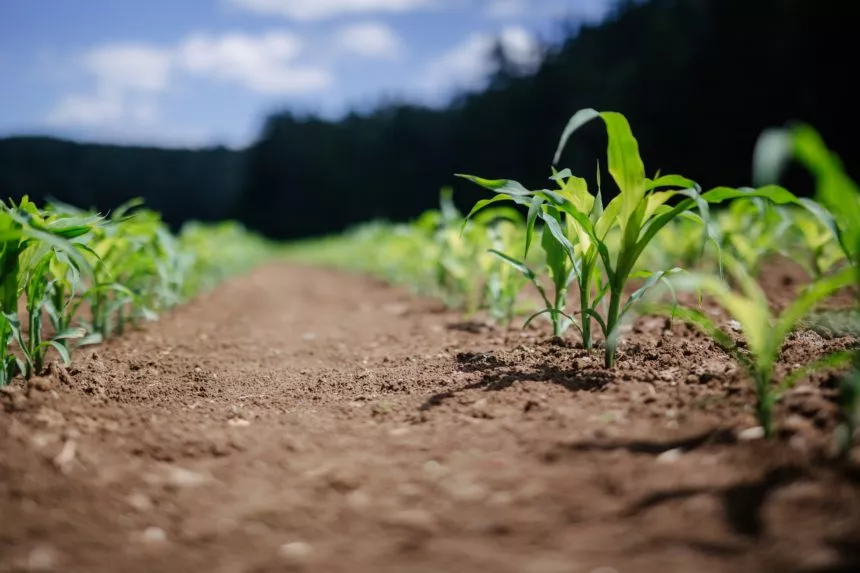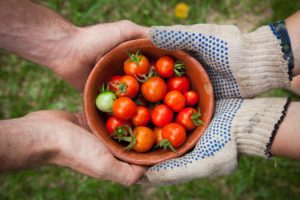Mission Focus: Food, Farming, and Fishing

Sectors within food systems are ripe for innovation – not just to mitigate further environmental harm, but to adapt businesses within these sectors to ensure they are prepared for the changes caused by our environmental crisis. Read on to learn more about how Zinc approaches environmental entrepreneurship in the food, farming and fishing sectors.
Food Systems and Climate Change
Food systems activities, such as producing food, transporting and storing wasted food in landfills, emit between 21-37% of global greenhouse gas (GHG) emissions. This is mainly due to animal production and deforestation for more agricultural land. At the same time, the conditions of the climate crisis reinforce existing food system inequalities and increase food insecurity.
Population growth in particular is leading to an increased consumption of meat and dairy products, meaning the GHG emissions of food systems are expected to rise by almost 90% by 2050. This means that unless we revolutionise food systems, the Paris Agreement goals are unattainable.
Whether via AgriTech, FoodTech, or mobilising grassroots skills and methods, we urgently need innovative methods to transform current food systems. We also need a better understanding of what might affect the scaling ability of climate solutions within the food, farming, and fishing industries. This is why this sector is one of the 4 we are focusing on in our next Venture Builder, with the mission to transform the industries that most impact our environmental crisis.

Photo by Elaine Casap on Unsplash
Innovation Across the Value Chain
Innovation is urgently needed to help these industries reduce emissions, pollution and harm to our natural ecosystems, and increase the resilience of food systems to the effects of climate change.
Progress has begun with new and emerging technologies well spread across the food system, from production processes right along the value chain to consumers. These technologies span myriad domains, including cellular agriculture, digital agriculture, aquaculture, food processing and safety, gene technology, replacement food and feed, and waste reduction.
For example, Inverlussa Marine Services, based on the Isle of Mull in Scotland, has deployed the UK’s first full-hybrid aquaculture service vessel. The Laurence Knight is estimated to use around one third less fuel each year than a diesel vessel, that represents a saving of almost 90,000 litres of fuel a year. This equates to a reduction in equivalent carbon dioxide emissions of over 234 tonnes per year.
In the US, Apeel Sciences is accelerating the preservation of fresh produce with plant-derived shelf life extension technology. By helping fruits and vegetables last two times longer, they’re poised to have a significant impact on reducing the amount of food that ends up in landfill (which in the UK alone amounts to 9.5 million tonnes per annum).
However, there are still significant opportunities to innovate and create business to business (B2B) commercial companies that will impact this industry.
Research has established several areas of innovation that are poised to have massive impacts in this area. These include pest/disease early warning systems and circular economy approaches for reutilising, recycling and repurposing resources.
A recent EU policy brief highlights several adaptation and mitigation action points, including amplifying efforts for sustainable land management (SLM), such as water-efficient irrigation methods, drought resistant crop cultivars and crop diversification. The brief also suggests supporting urban and peri-urban agriculture, which will reduce GHG emissions from food transportation and enable fixation of atmospheric nitrogen and carbon.
* * *
At Zinc, we understand that this action must be taken now. We want to find and support the talented individuals who can drive this change. That’s why we are supporting 70 passionate people to become environmental entrepreneurs on our 12-month, London-based Venture Builder, launching in October 2022. This ambitious cohort will build new B2B businesses from scratch to help transform the food, farming, and fishing industries with up to £250k in funding, access to Zinc’s ecosystem and guidance from 100+ visiting fellows. You can learn more at our website or join us at an event.
Applications are open now for our fifth venture builder cohort. If you are passionate about transforming the food, fishing and farming sectors to reduce their environmental impact and help businesses to mitigate against the effects of climate change, please put in an application today.
Join the Zinc community
Stay up to date with all Zinc updates and future posts as part of our fast growing community.
Featured Resources
Zinc Impact Report 2024
Zinc’s mission is to make the UK the best place to successfully start a venture which can have a massive impact on the health of people and the planet.
Increasingly, we are building deeper science ventures that serve global, industrial customers in environment and health, giving access to impact at a global scale.
Our 2024 Impact Report explores the challenges that need to be tackled to empower and enable talented founders from around the world to solve critical health and environmental challenges at scale, from here in the UK.
This report showcases success stories from the Zinc portfolio, and highlights how Zinc – and our growing community of hundreds of Founders, Fellows, Coaches, Partners and Funders – are working together to build a world-leading “Science-for-Impact” ecosystem for inception stage ventures in health and environment.
Impact Report 2023
We started Zinc with the hypothesis that missions are an effective way to attract highly ambitious, talented and experienced groups of innovators, who might not recognise themselves as “classic entrepreneurs” but are ready and able to start a new commercial and successful venture to tackle some of our most pressing societal issues.
The world has overcome the sorts of challenges we face today when it has adopted a mission-based approach to the biggest problems and brought together world-class talent to invent and innovate, e.g: NASA and landing a man on the moon, the LSE blueprinting the British welfare state, or the Gates Foundation aiming to eradicate diseases.
On this basis and assumption, we designed Zinc as a new mission-based Venture Builder — a place where global talent, ‘impact makers’, can join to experiment and develop new solutions to our most pressing societal issues.


